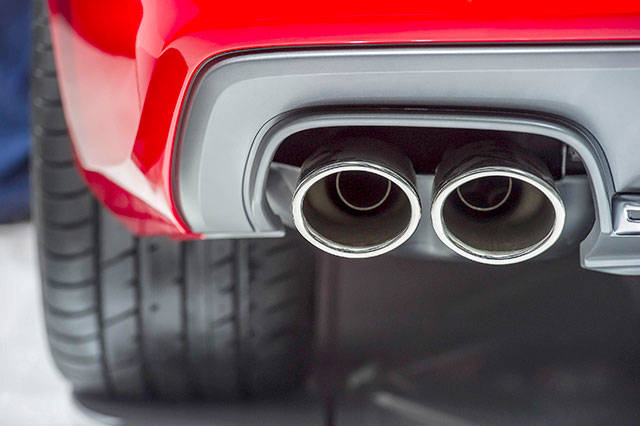Kent Police have tried for more than three decades to find a way to stop illegal street racing. So far, every step has failed to halt the racers.
That could change in the next couple of years with a new technology and new program to deter racers.
Police Chief Rafael Padilla hopes the state Legislature this year will approve a pilot program in Kent for 2020 to use new technology that combines sound measurement and video to catch vehicles with excessively loud exhaust noise and automatically issues a ticket to the vehicle owner with an image of the license plate.
“Could you imagine being a street racer with an illegally loud exhaust getting a ticket every time you drove your car in areas of street racing?” Padilla said in an email. “It’s our hope that it will make Kent a far less attractive place to race.”
Padilla said he does not know of any other law enforcement agency in the nation looking at this new technology. Seattle-based Cithaeron formed in 2016 to develop the technology, according to its website.
“Cithaeron’s patent-pending technology uses a device to remotely capture excess decibel noise violations from modified vehicle exhaust systems or aftermarket motorcycle pipes,” according to the company. “Think ‘red-light camera’ but for noise. We then present a queue of potential violations via web app to a city agent (typically a police officer) who reviews the violation and approves the citation, which is then routed to the noise offender for payment.”
The Kent City Council listed the street racing pilot program as one of its top-five priorities this year for lobbying legislators in Olympia. The session begins Jan. 14.
Over the years, police have tried major crackdowns with numerous arrests, even using a Washington State Patrol Cessna fixed-wing aircraft during one large bust to help spot the street racers gathering at a empty private lot behind a couple of warehouses. But the department found it couldn’t stop the popular spring and summer late-night racing with multiple arrests.
Other steps included rumble strips, signs that posted a Stay Out of Areas of Racing (SOAR) city ordinance and even an attempt to get the racers to go up to Pacific Raceways just east of Kent to drag race.
Racers, however, prefer using the north Kent industrial streets that are empty at night. They also have moved up to East Hill streets.
“The system would work in a similar fashion to our school zone speed cameras, but instead of measuring speed, it would measure exhaust noise,” Padilla said. “At first glance, some might wonder why exhaust noise is a priority for the department/city, but we are looking at this in terms a potential enforcement tool to help curb illegal street racing and the numerous complaints from community members about the loud noise of the cars engaged in illegal street racing.”
Kent has cameras at six elementary schools to capture speeding drivers when children arrive in the morning and leave in the afternoon. The city will add red-light cameras later this year at six intersections to catch drivers running red lights.
Padilla said illegal street racing is dangerous and has resulted in death, serious injury and property damage over the years.
“I routinely hear complaints from community members about racing in their neighborhoods,” he said. “When I ask them if they actually see the racing or if they hear the cars, they almost always state that they hear the loud noise from the vehicle exhausts, but don’t actually see the cars racing. The most common complaint is that they are awakened from their sleep by the noise.”
State law (RCW 46.37.390) requires that all vehicles be outfitted with a muffler/exhaust system and prohibits vehicle owners from installing muffler/exhaust systems that produce noise louder than that produced from the muffler that was installed by the vehicle manufacturer.
A good percentage of illegal street racers install very loud noise polluting exhaust systems on their cars to enhance performance, Padilla said.
“We have committed a lot of police resources towards addressing the street racing issue, but have not seen sustained success,” he said. “This technology, if it works, has the potential to identify vehicles with excessive exhaust an automatically send the potential violation to an officer for review and issuance of a ticket to the vehicle owner.”
The fine amount for excessive noise hasn’t been determined yet and would need to be approved by the City Council.
Talk to us
Please share your story tips by emailing editor@kentreporter.com.
To share your opinion for publication, submit a letter through our website https://www.kentreporter.com/submit-letter/. Include your name, address and daytime phone number. (We’ll only publish your name and hometown.) Please keep letters to 300 words or less.

